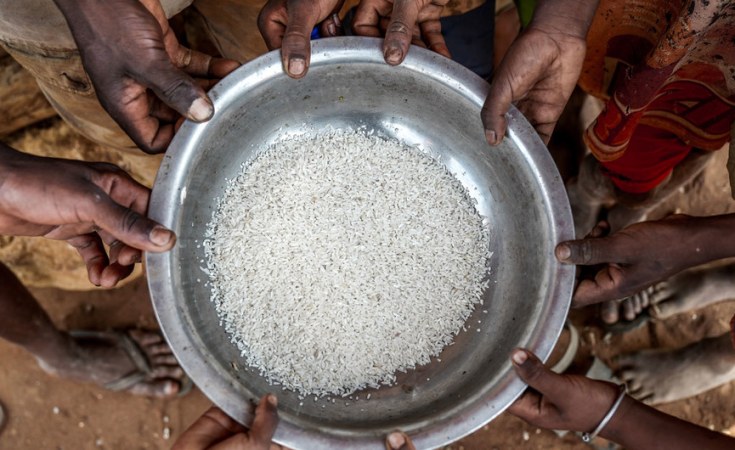The Food Security Information Network (FSIN) has stated that 40 per cent of the populations in IPC/CH phase 3 or above reside in Nigeria, Afghanistan, the Democratic Republic of the Congo, Ethiopia and Yemen
The IPC/CH is a visual display of the total number of people experiencing or facing high levels of acute food insecurity classified in crisis or worse.
According to the report, about 21 states in Nigeria including the Federal Capital Territory (FCT) constitutes the 40 per cent, adding that people in seven countries faced starvation and destitution, or catastrophe levels of acute hunger (IPC/CH Phase 5) at some point during 2022.
FSIN's 2023 projections available for 38 of the 58 countries and territories as of March 2023, revealed that up to 153 million people (or 18 per cent of the analysed population) will be in IPC/CH Phase 3 or above, saying that around 310 000 people are projected to be in IPC/CH Phase 5 across six countries - Burkina Faso, Haiti, Mali, parts of Nigeria (26 states and the FCT), Somalia and South Sudan, with almost three quarters of them in Somalia
The report obtained from the Food and Agricultural Organisation's (FAO's) website, pointed out that more than half of those were in Somalia (57 percent), while such extreme circumstances also occurred in Afghanistan, Burkina Faso, Haiti for the first time in the history of the country, Nigeria, South Sudan and Yemen
The statement added that the number of people experiencing acute food insecurity and requiring urgent food, nutrition and livelihood assistance increased for the fourth consecutive year in 2022, with over a quarter of a billion facing acute hunger and people in seven countries on the brink of starvation, according to the latest Global Report on Food Crises (GRFC).
The annual report, produced by FSIN, was launched by the Global Network Against Food Crises (GNAFC) - an international alliance of the United Nations, the European Union, governmental and non-governmental agencies, working to tackle food crises together.
The report finds that around 258 million people in 58 countries and territories faced acute food insecurity at crisis or worse levels (IPC/CH Phase 3-5) in 2022, up from 193 million people in 53 countries and territories in 2021. This is the highest number in the seven-year history of the report. However, much of this growth reflects an increase in the population analysed. In 2022, the severity of acute food insecurity increased to 22.7 per cent, from 21.3 percent in 2021, but remains unacceptably high and underscores a deteriorating trend in global acute food insecurity.
"More than a quarter of a billion people are now facing acute levels of hunger, and some are on the brink of starvation. That's unconscionable. This seventh edition of the Global Report on Food Crises is a stinging indictment of humanity's failure to make progress towards Sustainable Development Goal 2 to end hunger and achieve food security and improved nutrition for all, "UN Secretary-General António Guterres wrote in the report's foreword. "
Additionally, in 30 of the 42 main food crises contexts analysed in the report, over 35 million children under five years of age suffered from wasting or acute malnutrition, with 9.2 million of them with severe wasting, the most life-threatening form of under nutrition and a major contributor to increased child mortality.
While conflicts and extreme weather events continue to drive acute food insecurity and malnutrition, the economic fallout of the COVID-19 pandemic and the ripple effects of the war in Ukraine have also become major drivers of hunger, particularly in the world's poorest countries, mainly due to their high dependency on imports of food and agricultural inputs and vulnerability to global food price shocks.


